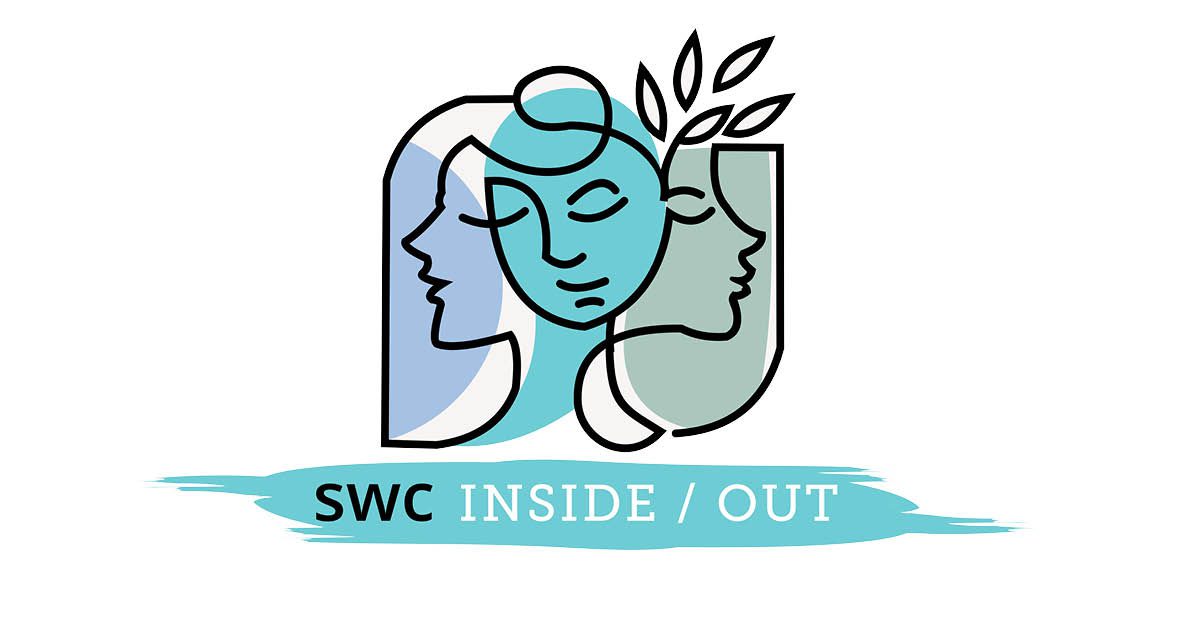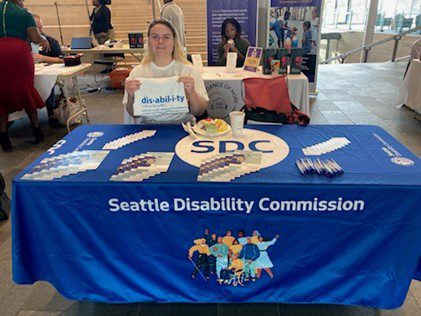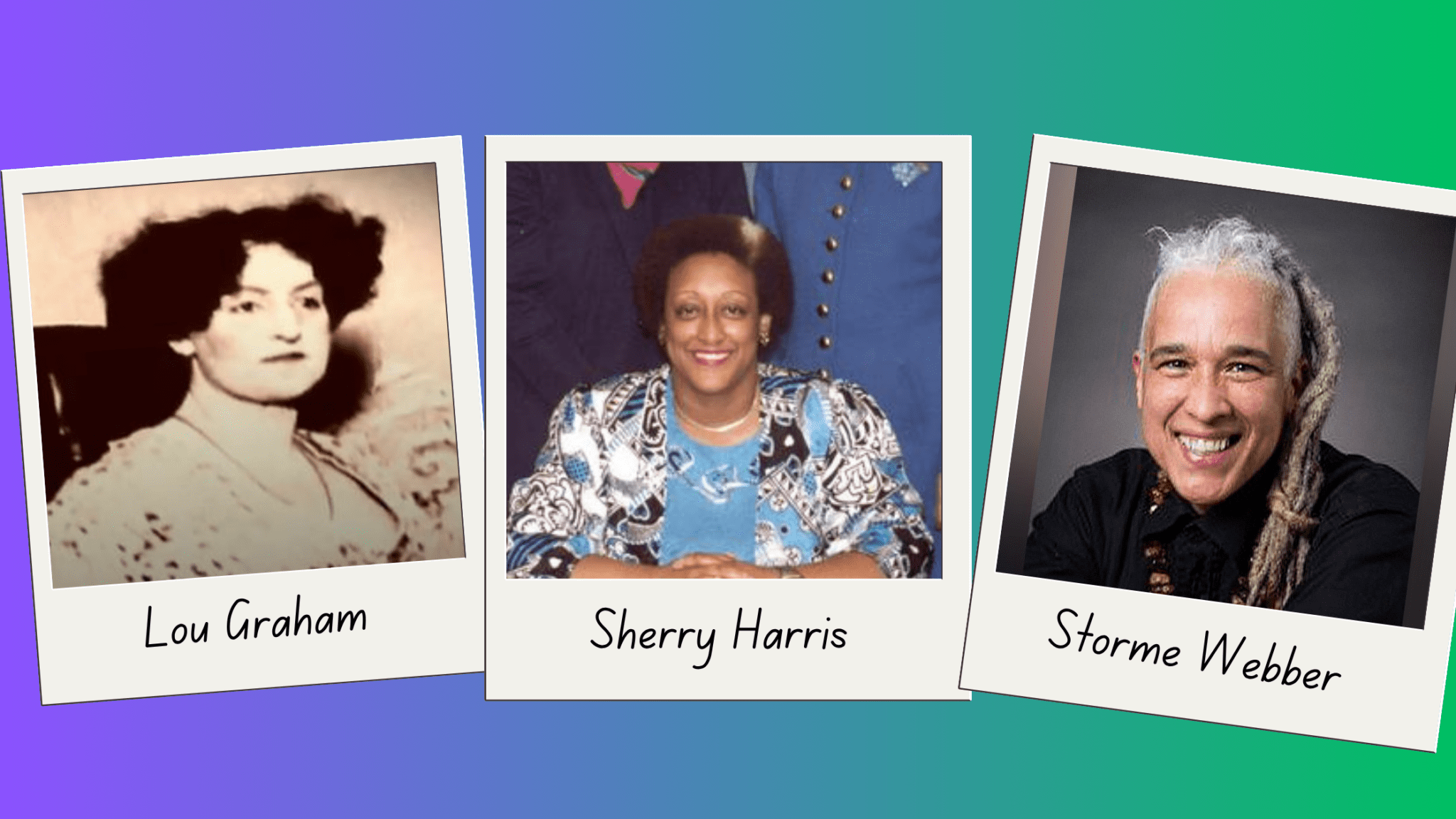
Welcome to SWC Inside/Out, an interview series with members of the Seattle Women’s Commission and the community members who inspire us. This is the second installment of the series. We are thrilled to be talking with the team at Surge Reproductive Justice about power, bodily autonomy, and the broad range of work they are doing to end reproductive oppression for all people.

Following the Dobbs decision, there has been an increase in media coverage and dialogue about reproductive rights and abortion. What, if anything, is the media getting right and what is missing from the mainstream conversation about abortion care and access?
Mmmmm this is a good question to start us off with because it’s something we asked ourselves as an organization when we were trying to figure out how and what the intention behind our organizing in relation to the Dobbs decision should be.
As an organization who operates under the Reproductive Justice framework and intentionally centers communities who have been historically oppressed by the reproductive rights movement, abortion access has never been a singular issue. All the organizing work we do has a long-term goal of bodily autonomy for all which requires us to look at the intersections of racism and gender-based violence. Our work is intentional in following the lead of Queer and Trans Black, Indigenous, and People of Color (QTBIPOC) communities, and that means approaching the work in a different way. We are looking at abortion care and access as an issue that is inextricably tied with racism, white supremacy, patriarchy, and gender-based violence.
What is missing from the current mainstream conversation on abortion care and access? The need to expand the conversation beyond abortion access for exclusively cis women, and to reframe it as a conversation about bodily autonomy as a human right that no one should have to fight for. Attacks on bodily autonomy have been ongoing – specifically in Queer, Non-binary, Trans, Black, Brown, Indigenous and Immigrant communities, and at the intersections therein. We need a conversation that really answers this question: “Why is it that anyone who isn’t a cisgender heterosexual white man has to fight for their bodily autonomy?” It’s looking at how limiting everyone’s access to their own bodily autonomy benefits patriarchy, white supremacy, and capitalism.
These attacks towards bodily autonomy are targeted for a reason and it’s crucial for us to understand that this comes from a fear of allowing people to stand in the power of their own bodies. We are powerful beings, and it scares those who currently hold the most influence here in the United States. Allowing marginalized communities to have bodily autonomy and a connection with this planet would slowly, but surely, tear down all of the systems of oppression – and those in power aren’t having it.
We need a conversation that really answers this question: “Why is it that anyone who isn’t a cisgender heterosexual white man has to fight for their bodily autonomy?”
Can you talk about the importance of using inclusive language when talking about abortion?
In relation to the past question on what the media is getting right from the mainstream conversation about abortion care and access, the importance of inclusive language is something we’ve seen highlighted this time with Dobbs. There’s definitely been a switch from reproductive rights centered organizations and media that is following the move away from abortion issues as one that only impacts cisgender heterosexual women.
This is great to see given bodily autonomy for all is something we highly advocate for and encourage our community to advocate for as well. Having access to bodily autonomy includes being able to decide your gender identity. If a person is Nonbinary and/or Transmasculine, abortion care and access still impact them, maybe even to a greater extent than it does for cis-het women as we know seeking gender affirming care is already a huge barrier in the medical world. Just because someone has the capacity to get pregnant does not mean they should have to conform to gender binary. Therefore, in the fight for abortion care and access we should not be pushing folks into the gender binary with our language; especially when it’s this exact use of the gender binary that is held as a weapon of “reason” to hold power over our bodies through violent legislation such as Dobbs.
The Seattle City Council recently voted unanimously to make Seattle the first abortion sanctuary city in the country. What are your thoughts on this and what should the Council do next?
While this is a first step, what we are focused on at SRJ is building the power of QTBIPOC in community-directed policy work. The recent vote from the Seattle City Council did not include our communities. Instead, they worked with the same organizations that led the political strategy to use the Supreme Court to secure rights (unsuccessfully), when we as QTBIPOC have always known that Roe was the floor, and that the legal system here in the United States has often been utilized as a tool of violence and harm against us.
On that note, to avoid a repeat of history, we encourage the Council to engage more intentionally with our community and create easier entry points for community leadership for future policy work on this issue. The process is just as important as the outcome, but we can’t have different outcomes if the same people are leading in the same ways they always have.
The attack on reproductive rights doesn’t exist in a vacuum. What are the other policy priorities SRJ focuses on that intersect and/or support reproductive justice?
In addition to our efforts to expand the conversation around abortion, we focus on issues across the spectrum of reproductive justice. For us this includes birth justice, healthcare equity, and bodily autonomy. What this looks like from a policy perspective is:
- Addressing the perinatal health crisis for Black and Indigenous folks through increasing access to birth doulas via our Doulas For All campaign and coalition.
- Working via the DecrimWA coalition to decriminalize sex work in Washington State.
The Black Perinatal Health Campaign is our other birth justice campaign. It has been an opportunity to build power and strategize as Black people for holistic solutions to support our birthing and pregnant people, their families, and the Black birth workers who support them.
Our Words Build Power is our healthcare equity campaign. It has been a community-centered research process around the structural and individual impacts on QTBIPOC community in King County during the COVID-19 pandemic, analyzed through a reproductive justice lens, and focused specifically on documenting our communities’ narratives of resistance and resilience. At this point, what’s come out of the research is a need for increased access to healing practices outside of the medical industrial complex, and more spaces to discuss and address medical racism.
It is important to note that we work through community-directed policymaking, meaning our community is not only centered, but informs, and leads the way we advocate for what we need.
What have you learned from community-directed policymaking that feels important for others to know?
What we have learned is we must invest in ourselves, build our leadership and our analysis of how systems and institutions exploit, harm, and/or underserve our communities. This work has to be accessible to those who are directly impacted, understanding that while community is coming together to create solutions, they are still navigating the impacts of racism at the intersection of gender-based violence.
What we have learned is we must invest in ourselves, build our leadership and our analysis of how systems and institutions exploit, harm, and/or underserve our communities.
We have also learned that it is essential to center our own measurements of success outside of what white dominant culture defines as success to ensure our entry into legislative policy change is liberating in the process and not just the outcome.
A community led lobbying process on a community written bill is definitely possible through authentic and accountable relationships with one another as well as the institutions we engage within and in between. This means appreciating the ways that our communities have always so creatively and brilliantly engaged in radical future building (or shifting).


